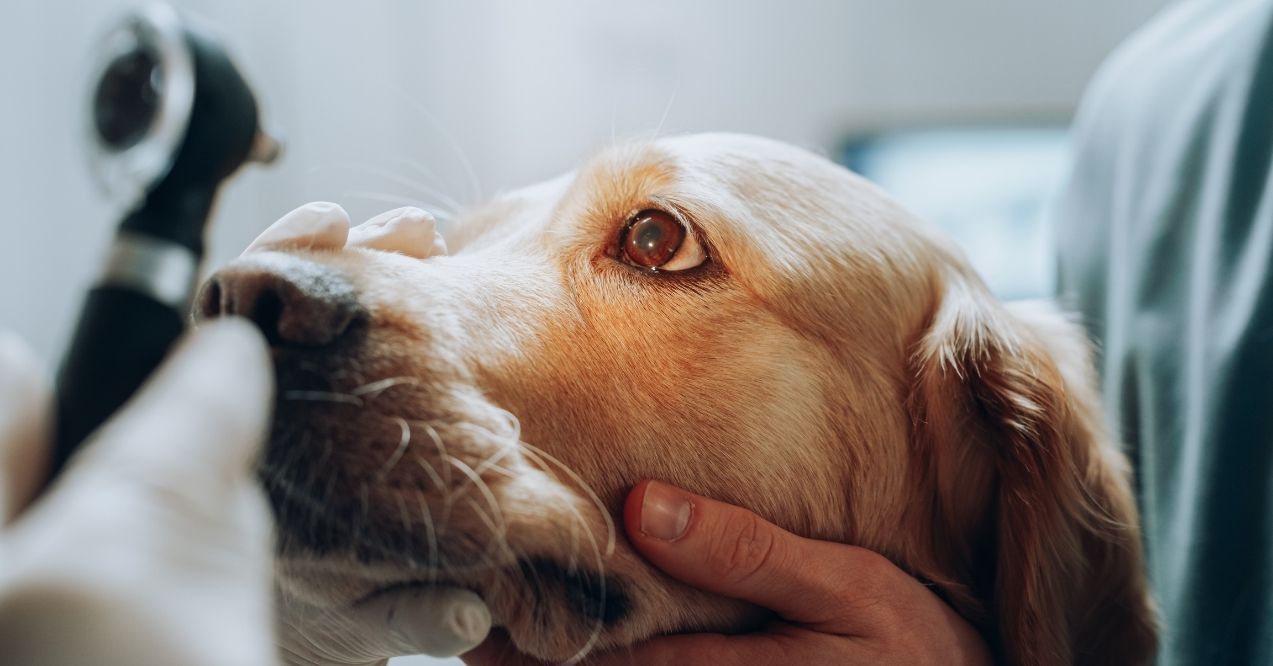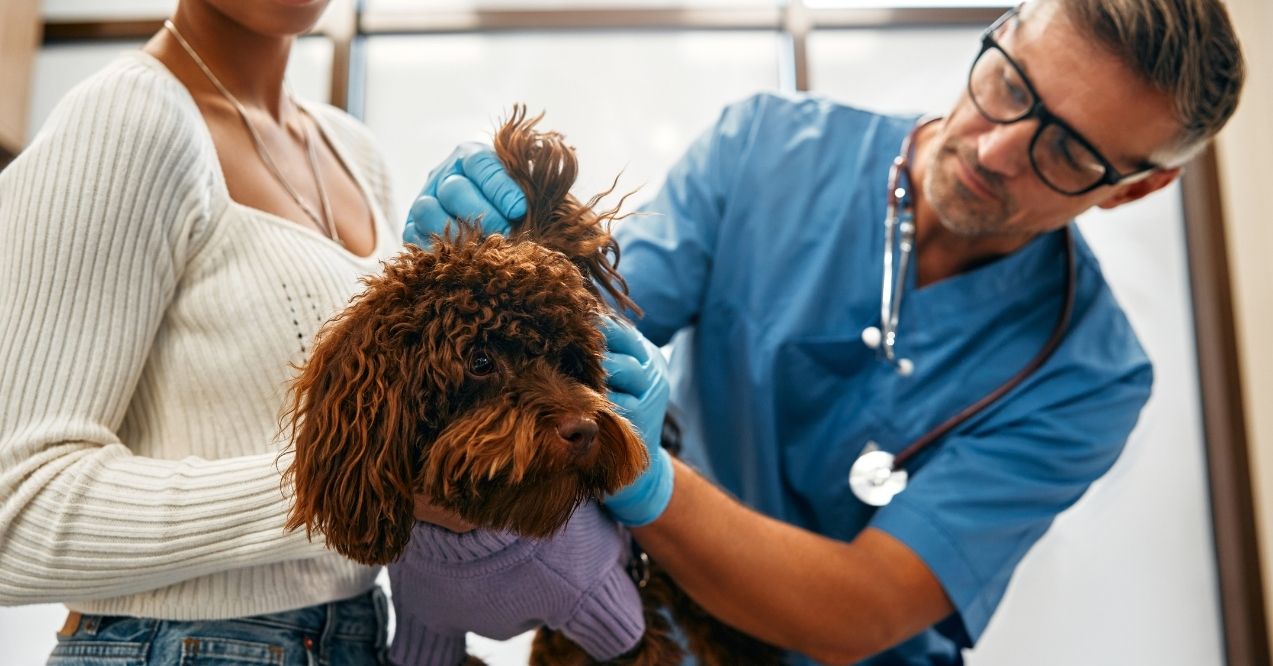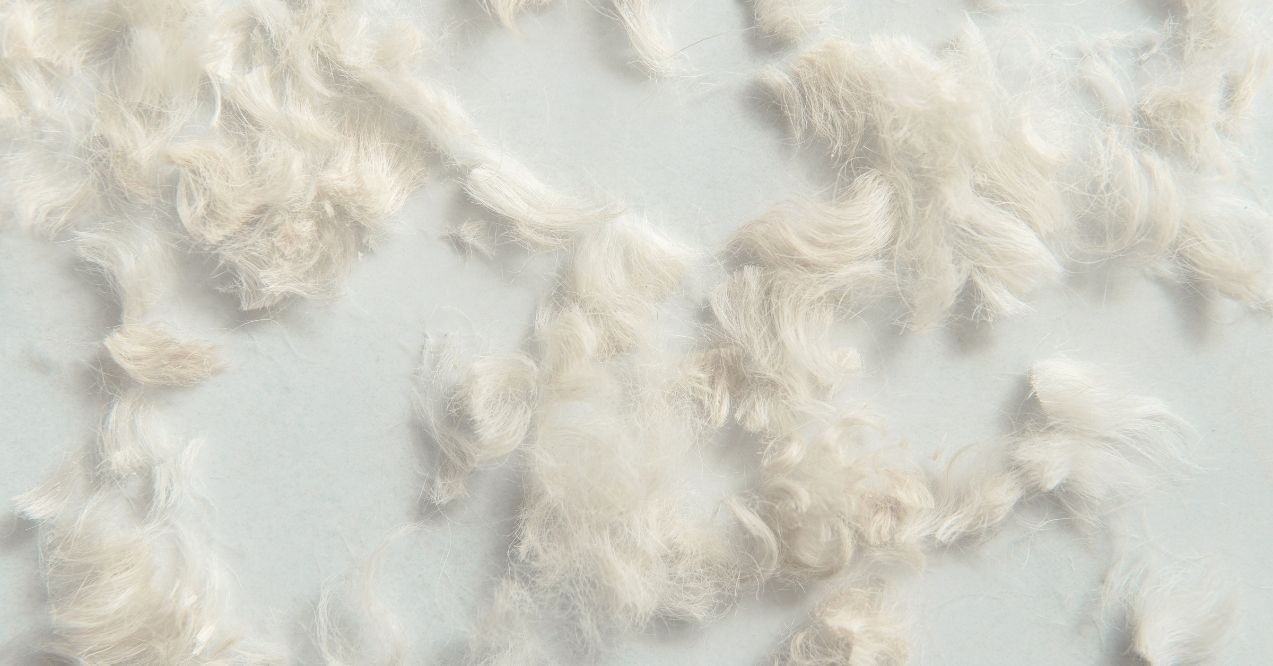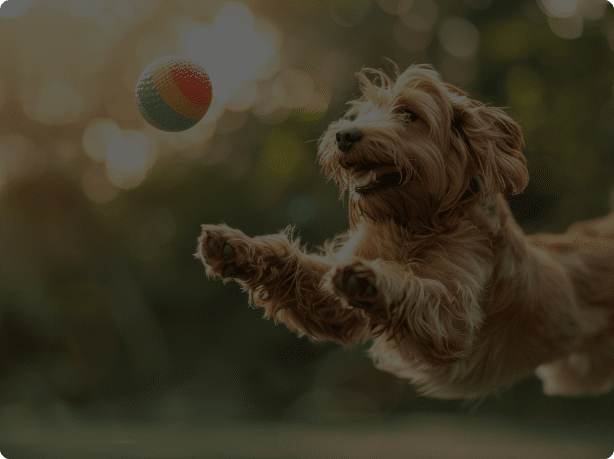5 Common Golden Retriever Health Problems
Golden Retrievers are the sunshine of the dog world – those wagging tails, goofy grins, and hearts full of love make them one of America’s most cherished companions. While these beautiful dogs bring immense joy to families everywhere, being a responsible pet parent means understanding the unique Golden Retriever health problems they might face during their lifetime.
This friendly guide will walk you through what to watch for, how to support your furry friend’s wellbeing, and ways to keep that golden smile shining bright for years to come. Whether you’re a seasoned Golden owner or considering bringing one home, this Golden Retriever breed information will help you provide the best care possible for your four-legged family member.
Golden Retriever Health Basics
Understanding your Golden’s unique physical and personality traits helps explain why they might experience certain wellness challenges. These lovable characteristics influence their overall wellbeing in ways every pet parent should know!
Body Structure & Joint Load
Golden Retrievers are medium-to-large dogs (55-75 pounds) with powerful builds that put natural stress on their joints with every enthusiastic movement.
Key considerations:
- Their active lifestyle means hips, knees, and shoulders work overtime
- Regular, appropriate exercise helps maintain muscle support
- Weight management prevents unnecessary joint strain
- Nutritional support for active breeds promotes long-term mobility
Skin & Coat Sensitivities
One of the Golden Retriever’s standout features is their thick double coat. It’s beautiful, but it also traps moisture, dirt, and dander – especially during outdoor adventures. This can lead to occasional skin discomfort if not managed well.
Regular brushing, coat checks, and the use of skin-friendly supplements can help maintain comfort and shine. If you notice dandruff, thinning patches, or dullness, these could be signs of unhealthy dog coat, which may be linked to an underlying Golden Retriever health concern.
Personality & Stress-Linked Issues
Goldens are social butterflies. They thrive on human interaction and can feel unsettled if left alone too long or without enough mental stimulation. When stressed, some may show changes in behavior, appetite, or energy levels. These shifts can sometimes signal deeper issues, so it’s good to stay alert and responsive to your Golden’s mood and routines. Providing consistent affection, play, and companionship helps promote emotional well-being and can support a more balanced, happy dog.
Common Health Problems in Golden Retrievers

Every parent should be familiar with the common health problems in Golden Retriever breeds so they can spot early warning signs and take proactive steps. While these lovable furballs are generally robust companions, staying alert to subtle changes can make a world of difference in maintaining their quality of life!
1. Joint Discomfort & Mobility Changes
Has your bouncy Golden suddenly become reluctant to join you on stairs? Perhaps they’re slower during walks or hesitate before jumping into the car? These could be early indicators that your pup is experiencing joint discomfort. While joint issues are among common Golden Retriever illnesses, there’s plenty you can do to support your furry friend’s mobility and comfort.
Watch for these signs:
- Reluctance to climb stairs or jump into vehicles
- Slowing down during walks or play sessions
- Difficulty rising after resting
- Stiffness that improves with gentle movement
Supportive strategies:
- Create cozy resting spots with orthopedic bedding for cushioning tired joints
- Engage in low-impact activities like swimming for exercise without joint pressure
- Consider supplements containing glucosamine and MSM for joint flexibility
- Maintain healthy weight to reduce strain on your Golden’s hardworking joints
2. Golden Retriever Eye Issues
Those soulful brown eyes are one of your Golden’s most expressive features, making Golden Retriever eye issues particularly noticeable when they arise. Regular observation helps catch potential concerns early.
Be attentive to:
- Bumping into furniture or seeming disoriented
- Hesitation in dimly lit areas
- Cloudy or watery eye appearance
- Excessive blinking or squinting
Supportive approaches:
- Maintain consistent furniture placement for easier navigation
- Install nightlights in darker areas of your home
- Clean gently around the eye area to prevent irritating buildup
- Include eye-supporting nutrients like omega fatty acids in their diet
3. Skin Discomfort & Excessive Itching
When your Golden starts scratching more than usual, it’s time to investigate. Their thick double coat can hide early signs of skin irritation, making regular “fur checks” and understanding what to do about skin allergies essential.
Look out for:
- Increased scratching or paw licking
- Dry, flaky patches on the skin
- Unusual shedding beyond seasonal norms
- Redness or warmth in certain areas
Supportive strategies:
- Identify potential triggers – seasonal changes, cleaning products, or bedding materials
- Incorporate skin-supporting nutrients like omega-3 fatty acids in their diet
- Use gentle, moisturizing shampoos formulated for sensitive skin
- Thoroughly dry their undercoat after baths to prevent moisture-related issues
4. Weight Management Challenges
Golden Retrievers have two notable talents: looking adorable and convincing you they’re starving (even right after dinner)! Their food-motivated nature can lead to sneaky weight gain that affects their overall wellbeing.
Weight issues might show up as:
- Decreased energy and enthusiasm for activities
- Visible weight gain around the rib area and waistline
- Heavier breathing during normal activity
- Difficulty performing previously easy movements
Effective management strategies:
- Establish consistent feeding routines with appropriate portions
- Choose quality nutrition formulated for active breeds
- Use low-calorie treats like carrot or apple pieces during training
- Schedule regular weigh-ins to catch concerning trends early
5. Behavioral Shifts Linked to Wellness
Ever wondered why do dogs bite themselves repeatedly? Your Golden’s behavior offers valuable insights into their physical wellbeing. Sudden changes in habits might signal underlying discomfort that deserves attention.
Notice these behavioral changes:
- Unexpected energy level shifts (too high or too low)
- New sleeping patterns or unusual restlessness
- Self-directed behaviors like excessive licking or chewing
Helpful monitoring approaches:
- Keep a simple journal of behavioral changes to identify patterns
- Maintain consistent daily routines for security and easier monitoring
- Check for environmental stressors like thunderstorms or schedule changes
- Create calm, predictable surroundings during periods of discomfort
Supporting Golden Retriever Wellness

Caring for your Golden Retriever goes beyond vet checkups – daily habits play a huge role in their long-term well-being. By focusing on proactive routines, you can help reduce the impact of common health problems in Golden Retriever dogs and promote a vibrant, happy life. From movement to meals, here’s how to support your pup at every stage.
Movement & Mobility Maintenance
Golden Retrievers thrive on activity, but it doesn’t have to be high-intensity. Consistent, low-impact play – like walking, swimming, or tossing a ball in the yard – keeps them physically and mentally engaged. These activities naturally support joint flexibility and balance. Even before visible signs of stiffness show up, joint-supporting supplements (like glucosamine or MSM) can be a smart, proactive addition to your dog’s daily routine.
Skin & Coat Support
A healthy coat starts from the inside out. Regular brushing helps distribute natural oils and remove debris, while moisturizing, dog-safe shampoos promote hydration. Omega-3-rich supplements are a great option to support skin comfort and manage seasonal shedding. Keep an eye on coat shine and softness – often, your Golden’s skin reflects their overall internal wellness.
Balanced Nutrition
Feeding your dog a well-rounded diet is foundational to their health. Whether you choose kibble, wet food, or fresh options, focus on meals rich in high-quality protein, healthy fats, and essential nutrients. The right nutrition supports energy, maintains coat appearance, and can even influence behavior and weight balance.
Lifestyle Adjustments as Your Golden Ages
As your Golden grows older, small home updates can make a big difference. Try orthotic beds for joint support, raised bowls for easier mealtime, and rugs to improve traction on slippery floors. Soft toys also keep playtime gentle. Track your dog’s energy, appetite, and behavior in a simple notebook – it’s a great way to spot early changes.
Weekly check-ins, like monitoring hydration, coat condition, weight, and comfort during walks, can help you stay ahead of potential Golden Retriever health problems. These mindful moments aren’t just practical – they’re part of the loving bond you share with your lifelong companion.
Conclusion
Golden Retrievers bring joy, loyalty, and boundless love into our lives – and with a little daily care, we can help them thrive at every age. By understanding the unique needs of this breed, you can better support their joint health, skin comfort, digestion, and emotional well-being. From watching for subtle behavior changes to adjusting your home setup as they age, small actions make a big impact.
Many Golden Retriever health problems can be managed or supported through consistent routines, balanced nutrition, and lots of love. The more in tune you are, the healthier and happier your Golden will be.
Golden Retrievers are prone to joint discomfort, skin sensitivities, weight challenges, and behavioral shifts. Their size, coat type, and affectionate personality all play a role in these common wellness concerns that often appear as they age.
Yes, Golden Retrievers can develop joint sensitivity, especially as they age. Their large frame puts extra pressure on their hips and knees, making it important to support mobility early with proper exercise, soft bedding, and joint-friendly supplements.
A healthy Golden Retriever has steady energy, a shiny coat, clear eyes, good appetite, and consistent behavior. Regularly check their movement, hydration, mood, and weight to catch early changes that might signal a need for extra care.
Many Golden Retrievers begin slowing down around age seven, though it can vary. You might notice shorter play sessions, more naps, or hesitation with stairs – natural signs that they may need extra support for comfort and mobility.
Advertisement. This site offers health, wellness, fitness and nutritional information and is designed for educational purposes only. You should not rely on this information as a substitute for, nor does it replace, professional medical advice, diagnosis, or treatment. If you have any concerns or questions about your health, you should always consult with a physician or other health-care professional. Do not disregard, avoid or delay obtaining medical or health related advice from your health-care professional because of something you may have read on this site. The use of any information provided on this site is solely at your own risk.




















